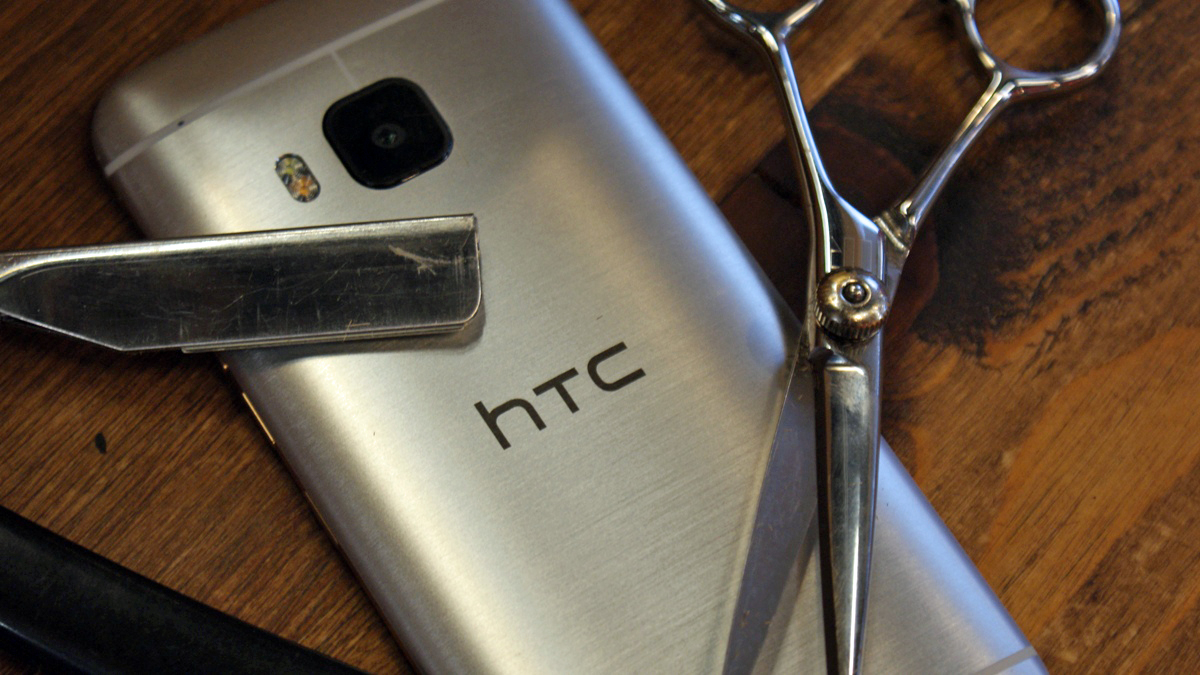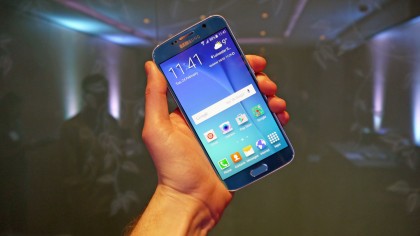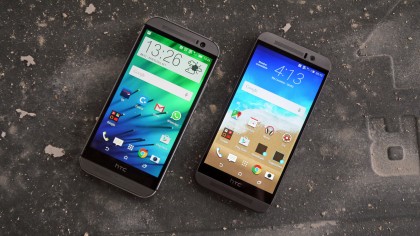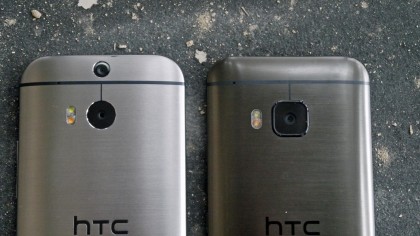HTC One M9 vs Samsung Galaxy S6
This year's smartphone heavyweights go head to head

The waiting is over and two of the most anticipated flagship phones of 2015 have been unveiled and thrust into our very palms. But how do they stack up against one another? We take a look at the latest offerings from HTC and Samsung.
Both HTC and Samsung find themselves in a similar position: needing their new flagship phones to make a big splash in the market.
HTC wants to keep trending upwards after a few years of dismal losses, and Samsung is in danger of sliding the same way if the Galaxy S6 isn't a big success.
Against that background, HTC and Samsung have thrown everything they can at these new phones. They're just about the best smartphone technology these two companies can come up with right now - but do either have what it takes to leave a lasting impression?
Design
There are few surprises from HTC as far as the design of the HTC One M9 goes: it looks a lot like last year's M8, at least from a distance. The full metal uni-body appears again after working so well last time, though overall the handset is a little shorter and fatter than the 2014 edition.

Samsung, in contrast, has shaken things up by fitting the Galaxy S6 with metal sides and a glass back. The appearance is along the lines of the S5, but the materials feel much more premium. There's a thinner bezel than last year's model but no waterproofing and no removable battery.
Display
HTC has chosen a 5-inch 1920 x 1080 pixel screen for the One M9, which puts it some way behind the spec of the display on Samsung's flagship. It doesn't look as far behind as you might imagine though, thanks to some clever use of LCD technology to boost the colours and contrast ratio.
Get daily insight, inspiration and deals in your inbox
Sign up for breaking news, reviews, opinion, top tech deals, and more.

With its Super AMOLED, 5.1-inch 1440 x 2560 pixel QHD screen the Samsung Galaxy S6 has one of the best and brightest displays around - even punching up to 600 nits of brightness when outdoors (which, in non-display speak, is super bright).
The screen on the S5 was excellent in all departments and we're expecting this to be even better. For something a little different, there's the Galaxy S6 Edge of course.
We've been fans of Samsung's Super AMOLED technology for a while now, but it's how the screens look in reality that really matters, rather than how the specifications look on paper - and to our eyes, the S6 just shades it thanks to that jaw-dropping clarity.
Processor
The latest and greatest mobile chip - the 64-bit octa-core Snapdragon 810 - sits snugly inside the HTC One M9, so it shouldn't be lacking in the power department, whether you're playing FPS games or playing 4K video. That's combined with 3GB of RAM, making this one of the most powerful phones on the planet.

Over in the Samsung corner, the Galaxy S6 eschews the Snapdragon route for its own 64-bit octa-core Exynos 7420 processor (although that's still to be confirmed from the South Korean brand). Couple that with 3GB of RAM and you've got a handset that, on paper, pretty much outspecs even the impressive M9.
There's good news for fans of a good, streamlined OS, as Samsung's TouchWiz take on Android now comes with fewer apps installed and a much cleaner interface, leaving you to enjoy all the features of Lollipop without distraction.
HTC has opted for Android 5.0 Lollipop too, with its own Sense 7.0 UI on top, which comes with a clever contextual widget to rearrange your apps depending on whether you're at work, home or out and about.

Dave is a freelance tech journalist who has been writing about gadgets, apps and the web for more than two decades. Based out of Stockport, England, on TechRadar you'll find him covering news, features and reviews, particularly for phones, tablets and wearables. Working to ensure our breaking news coverage is the best in the business over weekends, David also has bylines at Gizmodo, T3, PopSci and a few other places besides, as well as being many years editing the likes of PC Explorer and The Hardware Handbook.